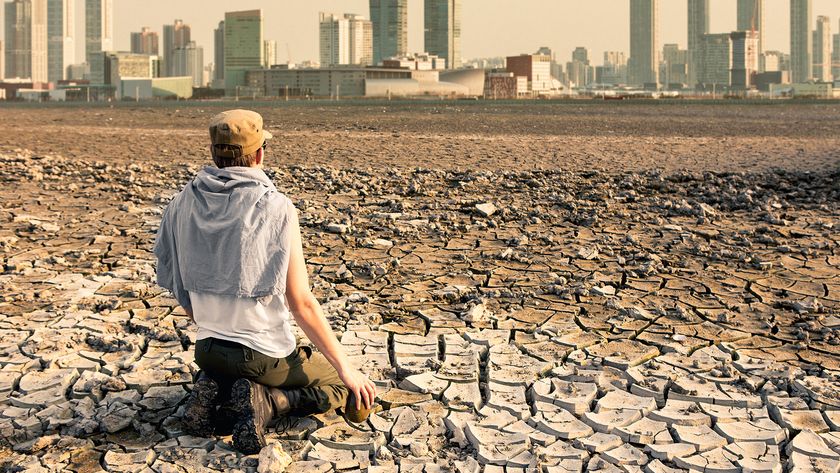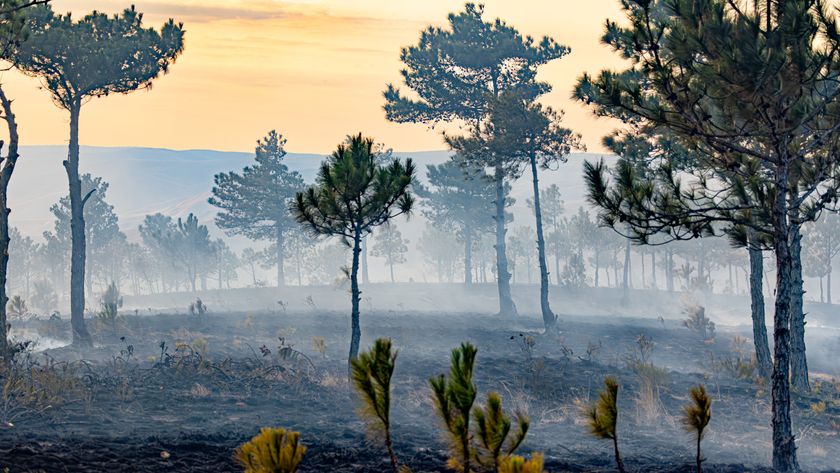7 iPhone Apps That Help Save the Planet
Plenty of iPhone apps can give you tips on how to lead an eco-friendly lifestyle, but only a few help you take concrete steps toward that goal. From eating green to saving stranded wildlife, here are seven apps to help you save the world.
Report Oiled Wildlife
Wildlife rescuers are out in force along the Gulf Coast, trying to save animals stranded by the BP Deepwater Horizon oil spill. But these teams aren’t big enough to comb every inch of beach from Florida to Louisiana.
That’s where "MoGO" comes in. Researchers at the University of Massachusetts Amherst developed this free app (the name stands for Mobile Gulf Observatory) in hopes of widening the wildlife rescue network. Users simply snap a photo of oiled wildlife, which is then pinpointed by the iPhone’s built-in GPS. Once the photo is uploaded, the app automatically connects you to a Wildlife Hotline to report what you’ve seen.
Besides helping rescue animals in the short term, "MoGO" users are building a database that will help rehabilitate the Gulf long after the spill ends, according to a statement by Andy Danylchuk, a UMass Amherst fisheries ecologist and one of the app’s developers.
“The MoGO public database will help guide restoration efforts of vital coastal and marine habitats, and be used by scientists world-wide to assess the ecological impacts of the spill on the Gulf,” Danylchuck said.
Track the Gulf oil spill
Sign up for the Live Science daily newsletter now
Get the world’s most fascinating discoveries delivered straight to your inbox.
Want to find out if your favorite beach has been oiled, or report tarballs in the water near you? The "Gulf Oil Spill Reporter" makes tracking the progress of the BP Deepwater Horizon oil spill simple. This free app, put out by the non-profit environmental monitoring organization SkyTruth, lets you browse reports of oil sightings, distressed wildlife and oily odors in the air. Users can upload photos and send their own reports, which remain archived at oilspill.skytruth.org. The app even lets you tag your own location and sends an email if the oil sheen creeps within about 12 miles (20 kilometers) of you.
Stop overfishing
The Monterey Bay Aquarium’s "Seafood Watch" app takes the guesswork out of ordering fish. From abalone to yellowtail, the app ranks seafood for sustainability and health. (For the record, abalone gets a “Best Choice” rating for sustainable farming, while Yellowtail gets a bright red “Avoid.”)
The app also lists the “good alternatives” between “Best Choice” and “Avoid,” and allows you to choose your region so you know you’re getting the right data for your area. Each entry explains why the rating was given, making this free app not only useful, but educational as well.
Plant a Tree
Dropping $0.99 on the "A Real Tree" app will net you a virtual tree complete with animated flowers and fluttering birds. But the true value is in the real world: For every purchase of "A Real Tree," the United Nations-endorsed charity’s partners plant one tree in a deforested tropical country. So far, according to the app Web site, almost 2,000 trees have been planted in Belize, Honduras, Nicaragua, Panama, Cameroon, Ethiopia, Burundi, Senegal, Zambia, India, Philippines, and Haiti.
Fight Global Warming
Ever wanted to try hypermiling, the driving style that aims to lower gas consumption to a bare minimum? Well, there’s an app for that. "GreenMeter" uses the accelerometers in the iPhone and iPod touch to evaluate your driving efficiency. It calculates your vehicle’s fuel usage, cost and carbon emissions in real time, while you’re on the road.
The app’s developers estimate that in the two years since its release, the $5.99 app may have saved 2 million gallons of gas and kept 47,000 tons of carbon dioxide out of the atmosphere. And there’s the added bonus that you could hypermile your way to fewer fill-ups, saving money while you save the planet.
Conserve Energy
Call it hypermiling for your house. The $0.99 app "MeterReadings" lets you track your gas, electricity and water consumption and costs. Users enter their meter readings and get back a wealth of data and graphs on daily, weekly, monthly, quarterly and yearly usage. The app will even extrapolate your next bill, giving you the thrill of trying to come in underneath the estimate.
Commute Smarter
For urban commuters, hybrid electric bikes that save energy from braking for use on tough uphill stretches aren’t a new idea. But the not-yet-released "Copenhagen Wheel Project" app aims to take hybrid e-bikes one step further.
The Copenhagen wheel is a “smart” bike wheel that converts a regular bike into an e-bike. Using a Bluetooth device, the wheel connects to a smartphone app and uploads information on how hard you’re peddling, what the road and traffic conditions are like, and even how much carbon monoxide is in the air. The app also controls how much assistance in peddling the wheel gives. Although production of the wheel isn’t set until the end of this year, the mayor of Copenhagen has already ordered a small fleet for city workers.
The hope, according to the system’s developers at the Massachusetts Institute of Technology, is that users will share their data via social networking to help other cyclists pick commuting routes. The resulting data maps could help urban planners build greener cities.

Stephanie Pappas is a contributing writer for Live Science, covering topics ranging from geoscience to archaeology to the human brain and behavior. She was previously a senior writer for Live Science but is now a freelancer based in Denver, Colorado, and regularly contributes to Scientific American and The Monitor, the monthly magazine of the American Psychological Association. Stephanie received a bachelor's degree in psychology from the University of South Carolina and a graduate certificate in science communication from the University of California, Santa Cruz.











